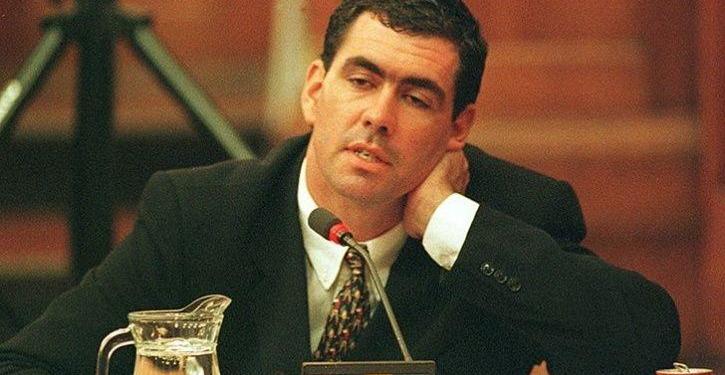The United Kingdom Home Secretary Sajid Javid gave his nod to the extradition of alleged bookie Sanjeev Chawla to India to face charges of cricket match-fixing dating back to 2000. He is a key accused in the cricket match-fixing scandal involving former South African captain Hansie Cronje in 2000.
According to a report published in News 18, a Home Office spokesperson said, “On 27 February 2019, the Secretary of State (Javid), having carefully considered all relevant matters, signed the order for Sanjeev Chawla’s extradition to India. Sanjeev Chawla is accused in India of match fixing in international cricket.”
Chawla, a British citizen, has 14 days from the date of the order to file an application to seek leave to appeal against the UK Home Secretary’s order.
This is the second extradition order signed by Javid for India. Last month, he had signed the order to extradite fugitive businessman and liquor baron Vijay Mallya. Currently, in the United Kingdom, the liquor baron is being pursued by Indian authorities over a number of charges and fears imminent extradition. He owes about Rs. 9000 crores to 17 Indian banks. Mallya appealed against the order. His application is currently pending in the UK High Court. So far, Chawla has not appealed against the extradition order.
Earlier, Sanjeev Chawla made excuses similar to those of Mehul Choksi and Vijay Mallya raising questions over Indian jails. However, the Indian government assured that accused Chawla will be accommodated in a separate cell, which will be occupied exclusively by him. Indian authorities also gave an assurance that human rights of Chawla will be taken care of properly.
Since the Modi government has come to power, India is on an extradition spree. Extradition is the act by one nation’s jurisdiction of delivering a person who has been accused of committing a crime in another nation’s jurisdiction or has been convicted of a crime in that other jurisdiction, into the custody of a law enforcement agency of that nation where he committed the crime.
Last year in December in a written response to a question in the Lower House of the Parliament, Minister of State for External Affairs Gen VK Singh said that the incumbent government has been making every effort to bring back fugitive criminals who have fled the country after committing the crime.
In the past five years to date, 22 extraditions have been carried out. The first extradition under Modi government was of Jaskaran Kalsi. In September 2014, Indian authorities successfully ensured extradition of Jaskaran Kalsi, an Indian, for murdering a Burundi national in Jalandhar and then flew to Australia in order to escape the trial.
Some high profile extraditions and deportations include that of Jagtar Singh Tara, Chhota Rajan alias Rajendra Sadashiv Nickhale, Abdul Wahid Siddibapa aka Khan, Wily Naruenartwanich, Anup Chetia, James Christian Michel, Samirbhai Vinubhai Patel, Md. Farooq Yasin Mansoor/ Farooq Takla among others.
There are many more in the pipeline. After the extradition of Christen Michel, News18 quoted Finance Minister Arun Jaitley saying that the trio of economic offenders like Vijay Mallya, Nirav Modi, and Mehul Choksi would follow Michel soon. Jatin Mehta is another fugitive that Indian authorities are looking to bring back.
Good diplomacy, well presentation of a case, constant interactions with countries coupled with many other factors is the reason behind so many successful extraditions. The incumbent Modi government is serious about bringing the fugitive criminals to book, and it is clearly evident from their actions.
























